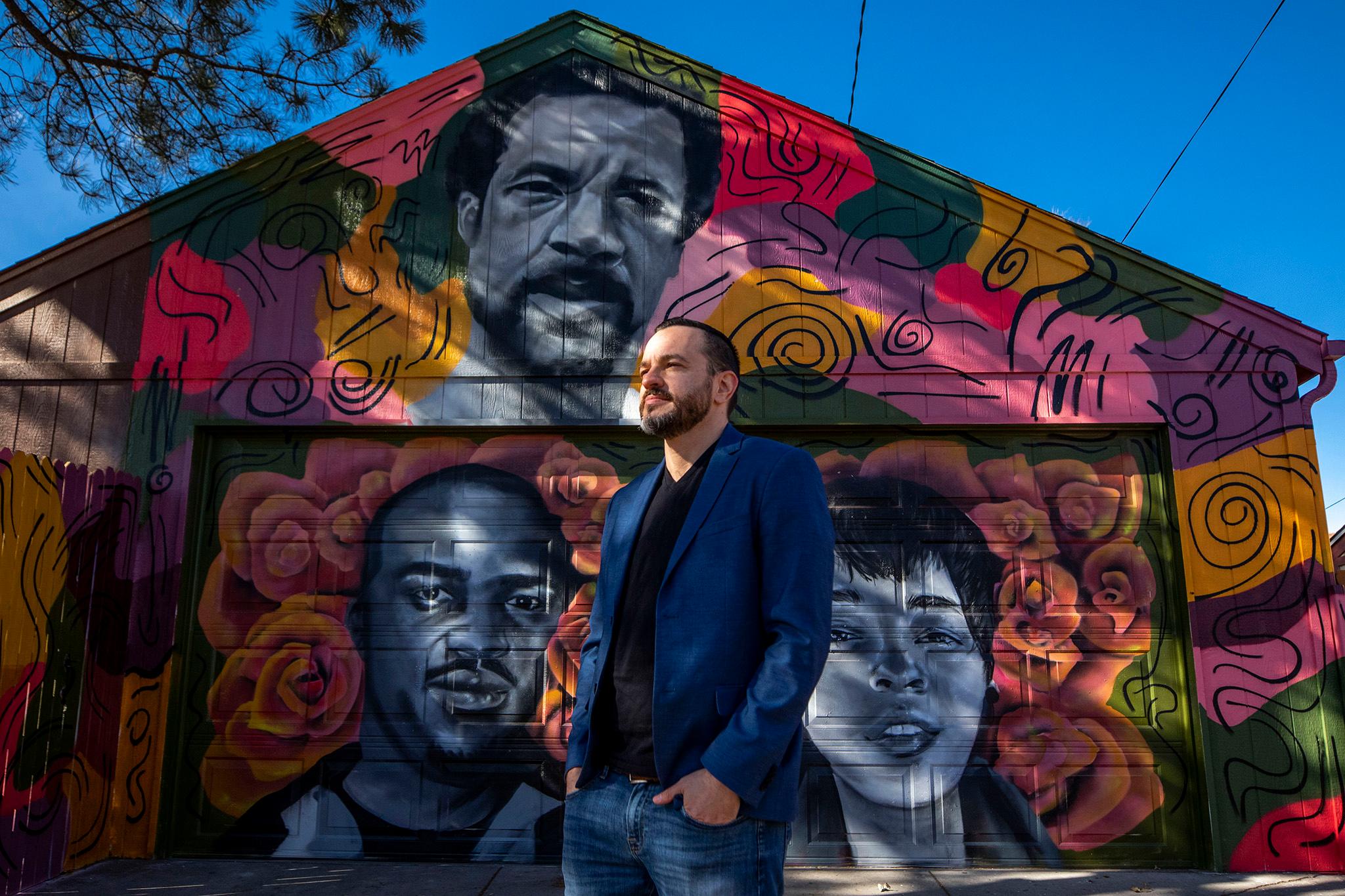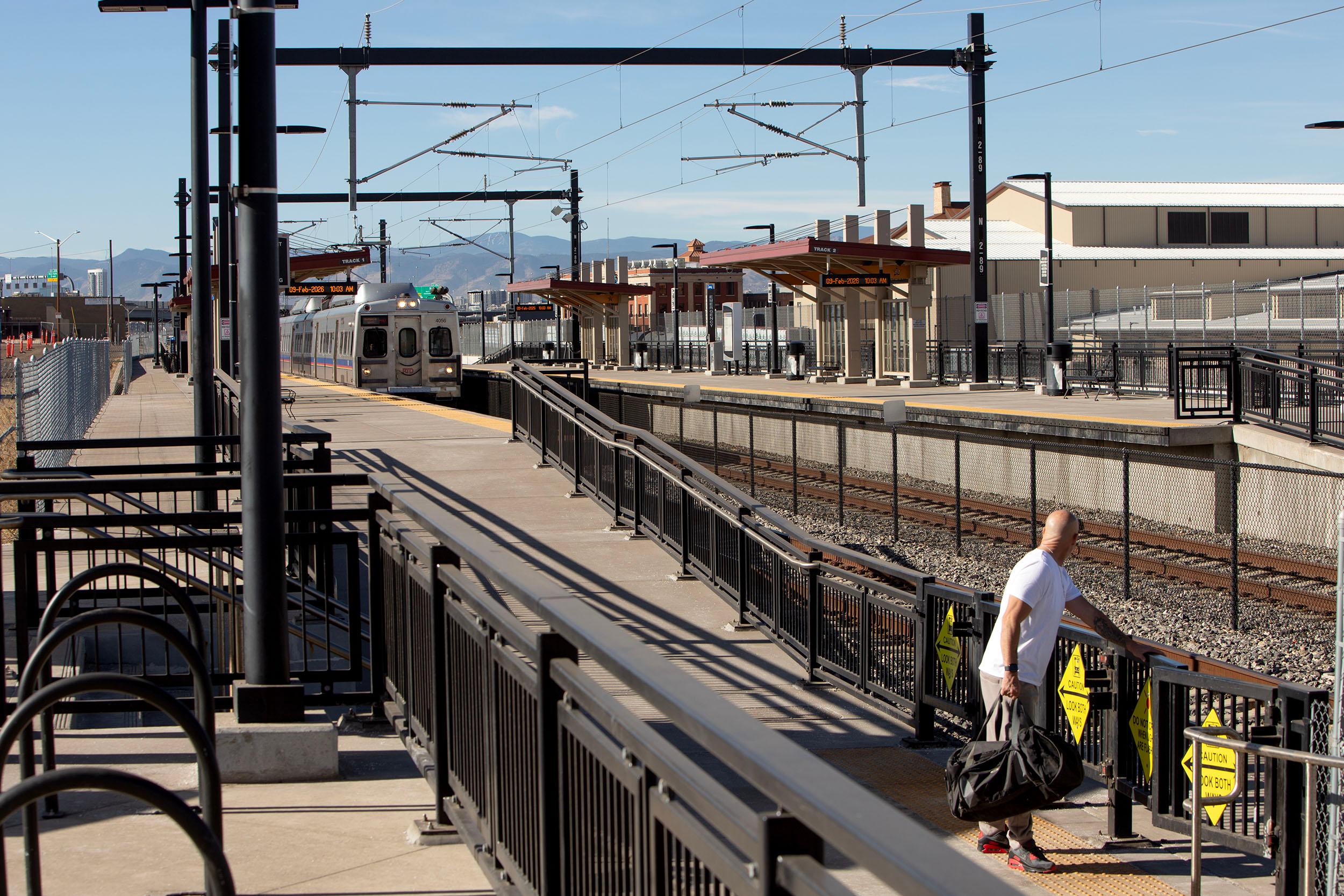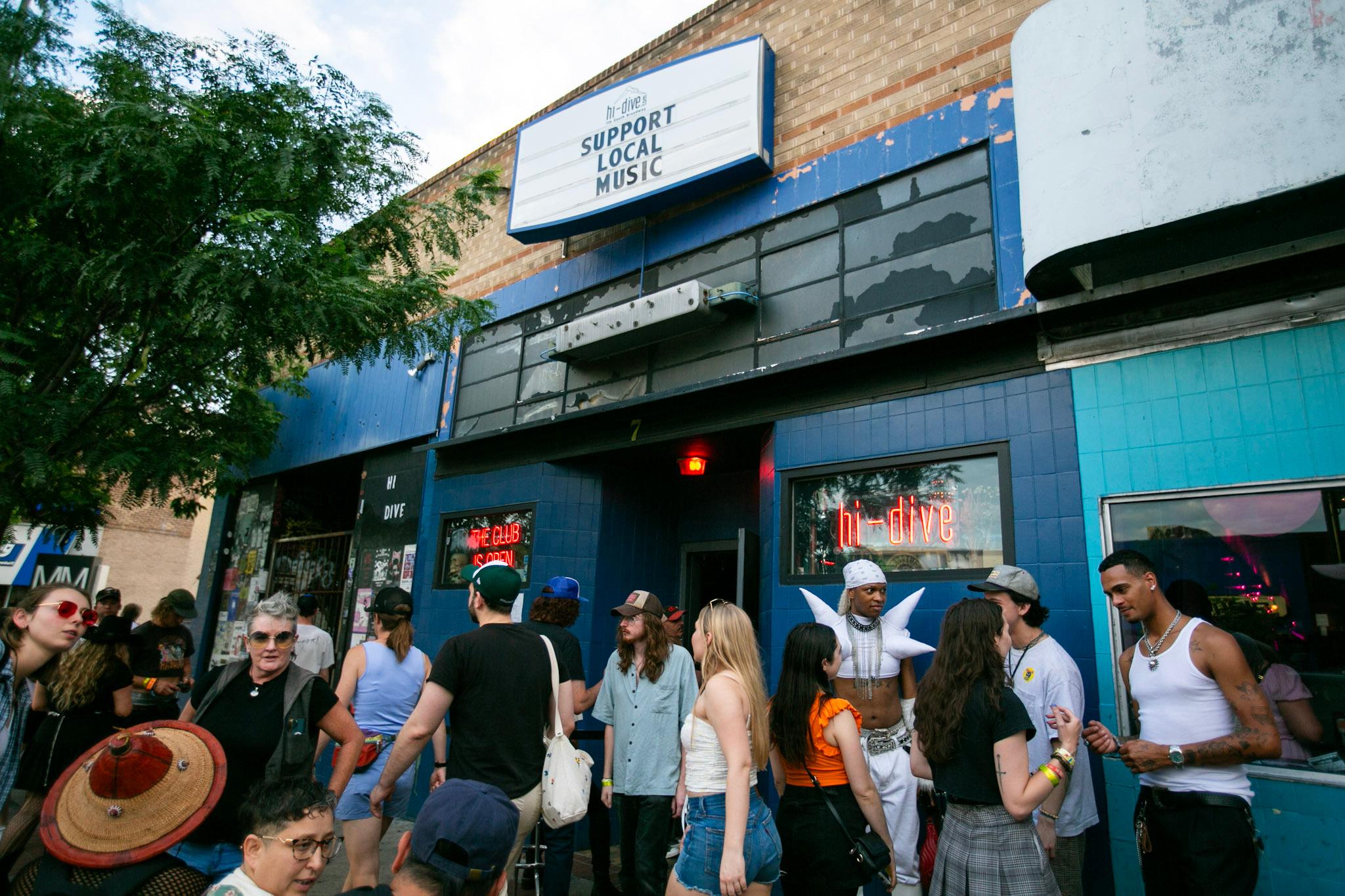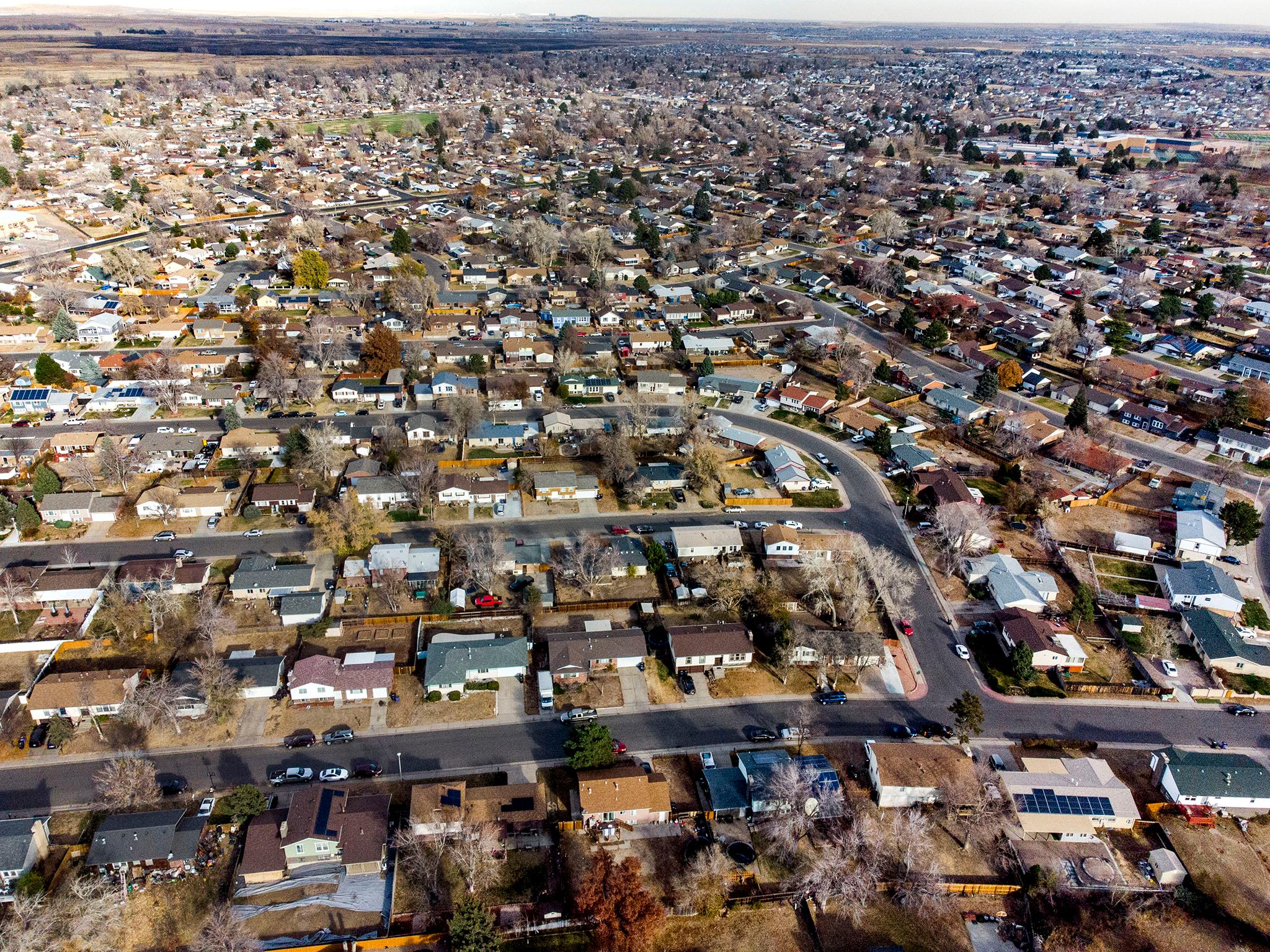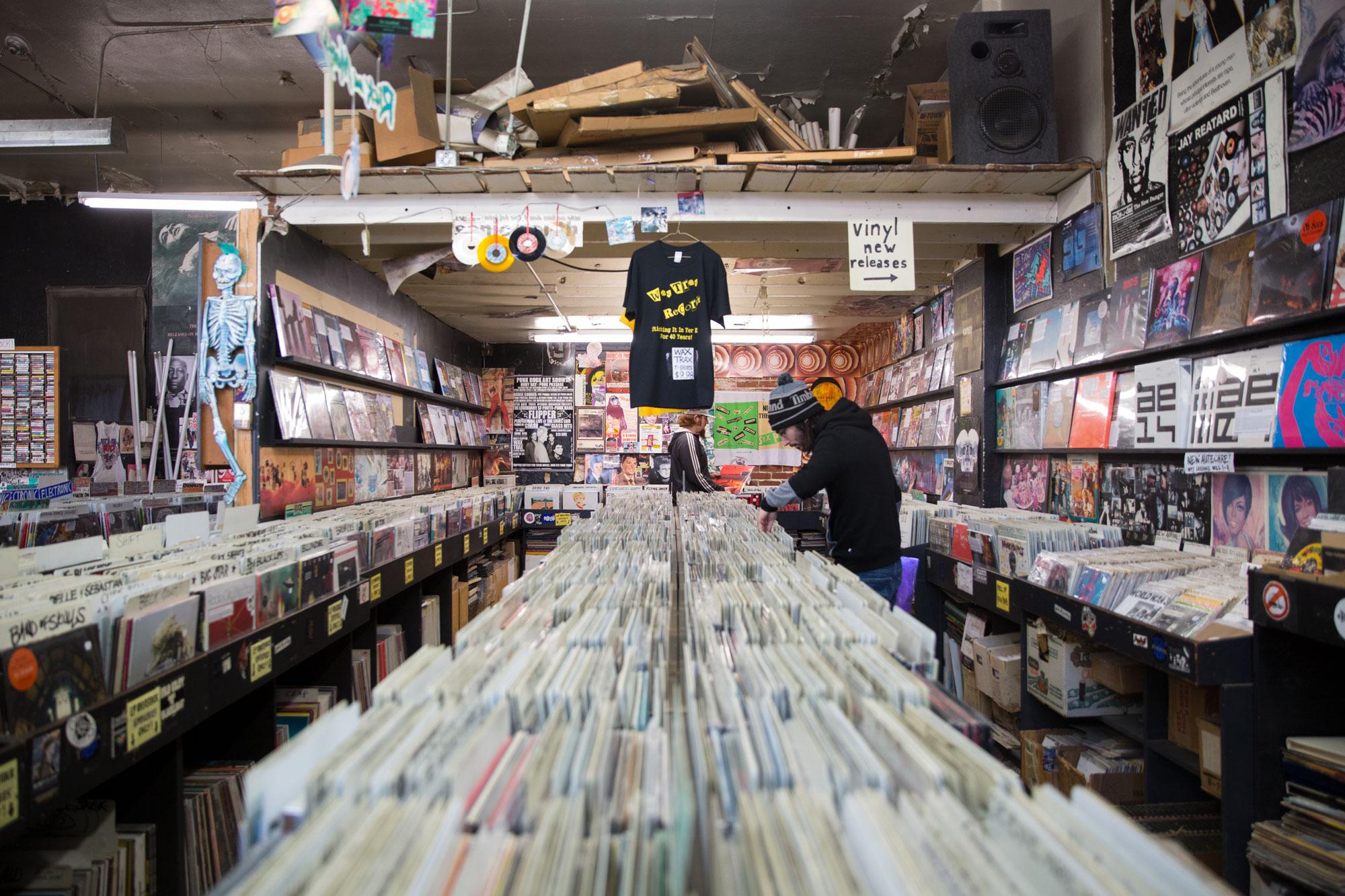Before we spoke on Wednesday, Nick Mitchell had just hit send on a report to a federal judge outlining whether the world's largest jail system, in Los Angeles County, was correcting the 69 Constitutional problems it promised to fix.
He's been busy. It was just a couple of months ago that Mitchell, the city's former independent monitor, aka watchdog, of Denver's police and sheriff departments, dropped a bombshell of a report that used surveillance footage and interviews to conclude that the Denver Police Department seriously mishandled protests against racism and police violence last summer.
Mitchell left the post in January to the dismay of a lot of law-enforcement reform types and, probably, to the relief of any police officers and jailers who didn't like the idea of critical oversight. He's now overseeing reform of the L.A. County jail system for the federal government.
Mitchell's tenure spanned the killing of Michael Marshall in jail and the police killing of teenager Jessica Hernandez, among other controversial acts of violence carried out by people with guns and badges.
In eight years of policing the police and sheriff's departments, Mitchell and his Office of the Independent Monitor played a leading role in reforming both arms of the criminal justice system. With the help of local advocates, law enforcement leaders and lawmakers, Mitchell forced a bunch of changes to the status quo, including how jails and their deputies operate, when and how authorities can use violence, and the requirement of body-worn cameras on officers.
A month removed from office, here's what Mitchell told us in an interview, which has been arranged and condensed for clarity and, believe it or not, brevity.
When you think of Denver's policing and jailing systems when you were appointed compared to where they are now, what's different?
When I was appointed, there was very little public discussion about incarceration in Denver -- conditions of confinement in the jails, excessive force in the jails. The work that I did and my team did over the last eight years to enhance transparency in the jails happened to coincide with a national, growing level of interest in what's happening behind the walls of jails and prisons, so that was fortuitous.
I think it's a major change that the media in Denver spend more time focusing on the jails. There's more citizen engagement with jail issues. And I think, frankly, conditions have improved in some important ways. Not nearly as much as they should, but they have improved.
In what specific ways did jails improve under your watch?
I'm a big believer in the power of scrutiny to change behavior. There's a lot more scrutiny on uses of force in the jails today. There's a lot more scrutiny on the investigative process. When there are complaints and grievances of alleging deputy misconduct, there's a much more rigorous process for evaluating them with outside oversight to make sure that deputies who are abusing their authority are caught.
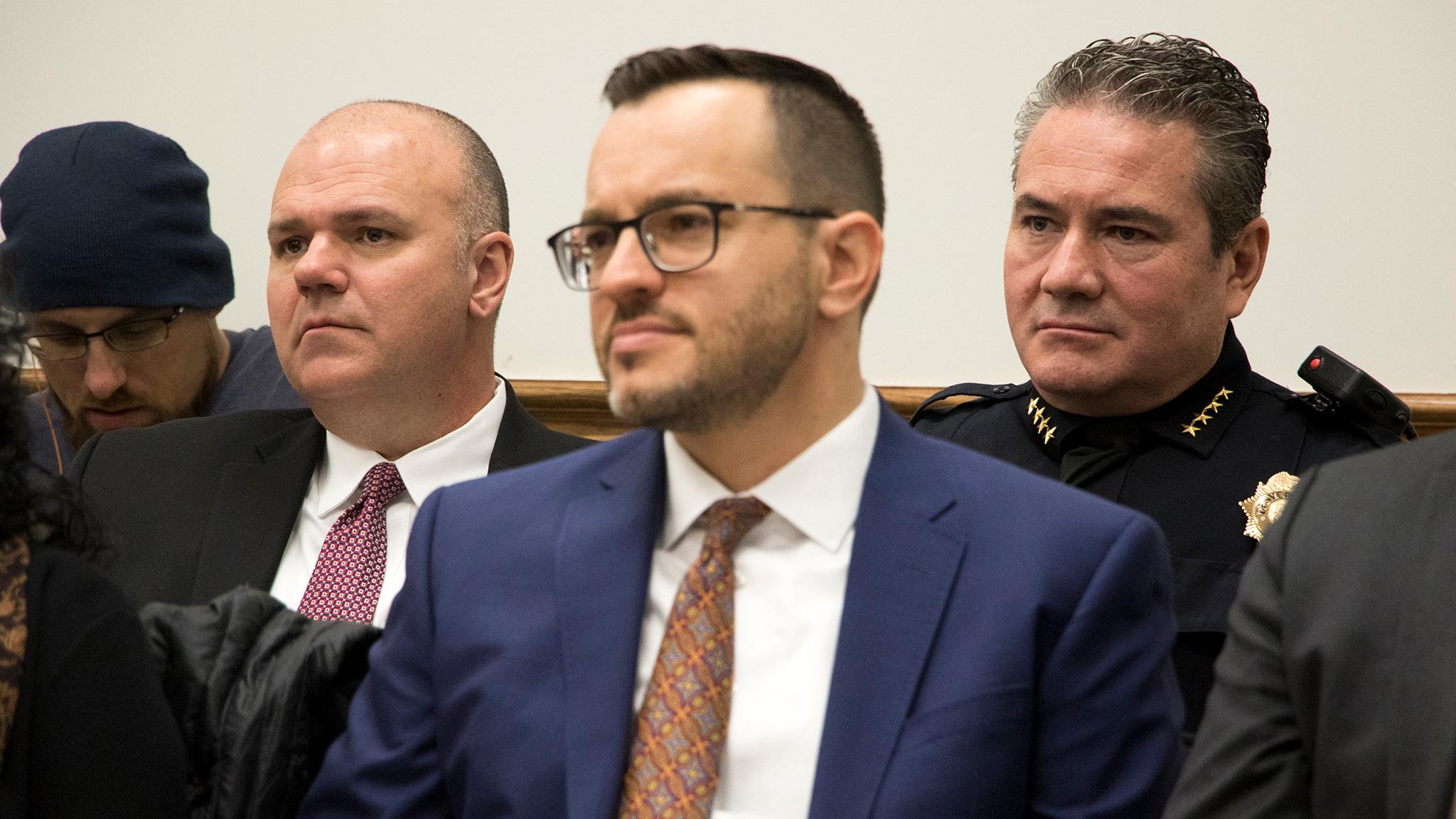
I think we've certainly been able to exonerate plenty of deputies who are falsely accused, but we were also able to, through rigorous investigation and partnership with the sheriff's department and the safety department, hold a number of deputies who were engaging in extremely problematic behavior accountable, up to and including being terminated from their employment because they simply didn't have what it takes -- the emotional makeup to continue being deputy sheriffs inside the jails.
And how has the police department changed since you were appointed years ago?
I think it's an evolving process. I think the current chief of police (Paul Pazen's) heart is in the right place and he's trying to do fundamentally good things for and within the police department. Culture change is extremely slow to occur. I think my most recent report documented not only some significant policy gaps and policy problems but also, in some ways, some cultural problems that our department has. I think the leadership team and the police department is trying to, in some ways, change the internal culture of the department, but it's certainly an evolving process and it's going to require a lot more work, a lot more buy-in from the department. And, frankly, more engagement from the community.
On that note, about 60 people are involved in the "Reimagining police" group, which the Department of Safety and the police department pulled out of. How can the transformation that local law enforcement leaders have promised happen if they're not part of the community-led process they asked for?
I have the same question. Change can't only be imposed from the outside. There has to be buy-in from the department, at least at some level. So I am concerned that the police department and the safety department are no longer part of that group.
The goal should be to get them back at the table without sacrificing the goals of the task force. If we want this to be a sustainable, lasting change it's got to happen with some engagement from the department.
Sure, culture change is really slow. But how can you reconcile that idea with the fact that people's lives are ruined while they wait for that culture change? How can culture change be sped up, given its urgency?
I think the first thing is to reduce the footprint of the criminal justice system in Denver. The fewer people who are drawn into that cycle over and over and over again, it's in many ways better for our city. There are certainly some people who have engaged in behavior that requires them to be incarcerated for some period of time. From my perspective, that is a fact. But there are many people -- and I would argue many more people -- who were sucked into the criminal justice system who really don't belong there. People who are addicted to alcohol or drugs, people who have profound mental health issues that make them unable to regulate their own behavior.
And if you look at our jail population of the city, it's pretty high for the size of our city. There are other cities that have moved more aggressively to decarcerate and to shrink the footprint of the criminal justice system. And Denver has been pretty slow to get on board. And fundamentally, if we want to have a conversation about what will make the system work better, making the systems smaller is an important component of reducing its impact on the lives of people in the city.
But would that be a way to speed the culture-change up?
I think it would be a way to minimize the harms associated with involvement in our justice system. Would shrinking the system result in a faster culture change? I think it's entirely possible. Although I'm pretty careful to base my assessments on research, and it's very hard to measure something as amorphous as culture change. It's something that's extremely difficult to measure, but we sort of know it when we see it.
Why do the city's police and jailing departments need such critical oversight?
Well, the sanitation department can't kick your a**.
We live in a constitutional democracy. We give criminal justice entities incredible amounts of power to seize property, to enter your home, to seize your person, and to use force -- up to and including lethal force. And with that extra authority that we give to those institutions, it's entirely appropriate that there's a greater degree of oversight associated with how that power was used against the citizenry.
Other constitutional democracies exist with less violent law enforcement. Is it a problem that they have so much power instilled in them by the state?
I'm not sure. I think policing as a profession has been changing and professionalizing over many decades. If you look at the history of the procession, it wasn't that many decades ago that there was almost no oversight whatsoever over the policing function. Corruption was endemic in the New York Police Department when my grandfather was a homicide detective. Officers would have to tally the amount of each shakedown bribe that they took off the business owners on their beat so at the end of the shift, the sergeant could tally up how much money had to be distributed to each member of the precinct. That's not that long ago for America.
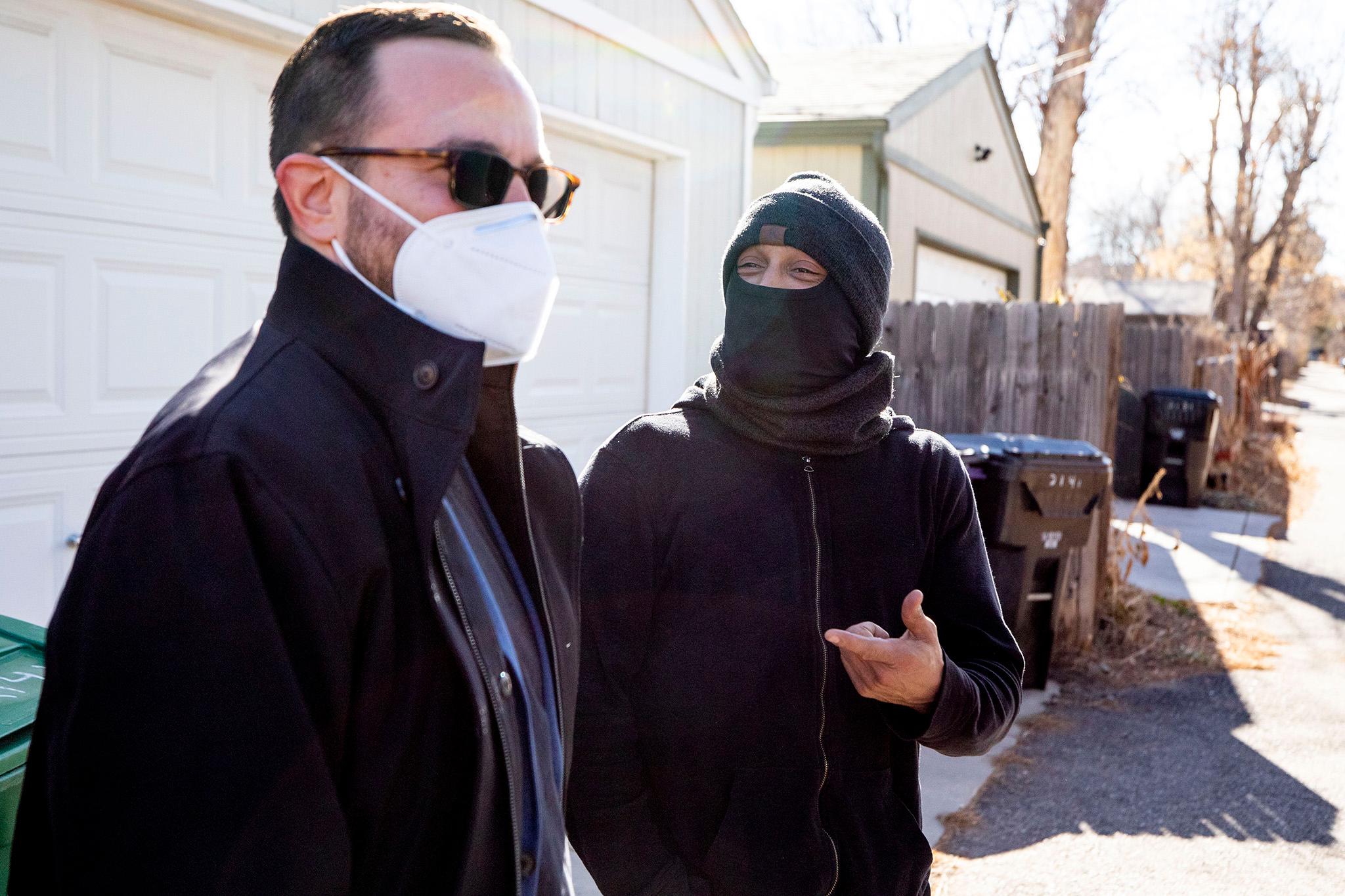
So policing has undergone major changes -- I would argue major improvements -- and has professionalized. There are many more standards today associated with how cops should do their business and when it's appropriate to use force and when it's not appropriate. And I think that process has not ended. I think we're in the middle of the professionalization of policing. The state law that was passed last year and others like it around the country are just kind of one more phase in the professionalization of policing.
I'm not sure that we're ready, given the number of guns that are on our streets -- and it's a big number -- that we're ready as a city or as a country to have cops on the street without the power to use weapons when they need to. But I think we are ready as a city, a country, to have much tighter, more stringent standards for when they shouldn't be allowed to use the power to take life and meaningful scrutiny for when they're allowed to use force.
Nick Rogers, president of the local police union, once called you a dragon slayer in search of a dragon. He was suggesting that you were looking for problems that didn't exist.
It's a great nickname. And the first time he used it, some of my staff went out and bought this really neat dragon and a guy with a sword and they left it on my desk for me.
It's not an uncommon critique of government officials who are engaged in work to create transparency. Really, any kind of regulatory body is often accused of, 'You're just trying to justify your own existence. There are no problems here.' You just kind of have to take that in stride because every regulated entity usually makes that claim.
What is the conversation around reform missing?
If we really want to improve the system, we'll reduce the number of people who are incarcerated, who are getting arrested, end up getting detained within our jail system. So I think that's in the discussion nationally. But from Denver's policymakers, I don't think that's being talked about nearly enough.
Are there any barriers that you experienced during your time as monitor that you would like to see removed for your successor?
I think there's this open question about what the word 'independent' means in 'independent monitor.' And it comes up periodically given that the monitor is appointed by the mayor and is fundamentally an at-will, government position. There are some very limited protections in the municipal ordinance for the monitor.
Other cities have moved to strengthen and enshrine the independence of the position into law in a more meaningful way. Some cities have created a term of years for the independent monitors, so you will serve for five years absent gross misconduct or criminal behavior. So you cannot be removed for political reasons. Some report directly to the city council as opposed to the mayor. I'm not advocating for one approach over another. I think there's room in the public debate for different ideas, but I do think it's an open question that I certainly grappled with, and it will be an issue for my successor as well. I'm almost sure of it.
I was reasonably vocal about asking the city council to make legal changes to address obstacles that I was encountering as the monitor. And I would encourage my successor to do the same thing when she or he encounters the inevitable obstacles.
Do you think it's reasonable for the public to be suspect of the fact that police misconduct is investigated by the police department and also disciplined by the police department?
I would say it's fair to be skeptical. I'm not sure if 'suspect' is the right word, but lots of institutions have a hard time policing themselves. So I think it's entirely fair for the public to be skeptical and engaged in a close review of incidents that they become aware of either through their own life experience or through the reports of the independent monitor about incidents that were investigated and handled with a decision from the safety department. That doesn't mean that people are ill-intentioned. It just means that public critiques or praise for the system and how it's working is an important component of making it work better.
Do you think the independent monitor should have the ability to discipline officers? And if not that office, someone other than the safety department, which is essentially investigating itself?
When I was the monitor, I felt that if I became the disciplinary decision-maker, then I'm not the monitor anymore. I become the manager of safety. And then who's my monitor? I was asked many times by city council members and others about the prospect of giving me that authority. And I always thought there were significant structural problems with that model.
I think there are models out there that may be worth looking at. Some cities have a safety commission that has that authority -- a body of representatives who have disciplinary power over police officers or sheriff's deputies. I think that's worth considering.
You're known as someone who has built a lot of bridges and developed a lot of trusted relationships within the community -- more so than your predecessor. How and why did you do that?
I think I realized early on that I was taking a position that could be incredibly important and impactful in the lives of people in this city. But fundamentally, I was going to be writing long, boring reports that more than likely would just end up sitting on dusty bookshelves doing nothing. And so in order to essentially build out the ability to shape policy and shape behavior, and improve the lives of people in the city, I had to create a network. And this sounds kind of utilitarian. I also like people, I care about making the justice system better, so I also got a lot of personal satisfaction out of building those relationships. But I'm kind of a strategic, tactical thinker. And in order to develop any power to move the needle, I needed people to believe in what we were doing and help us move it.
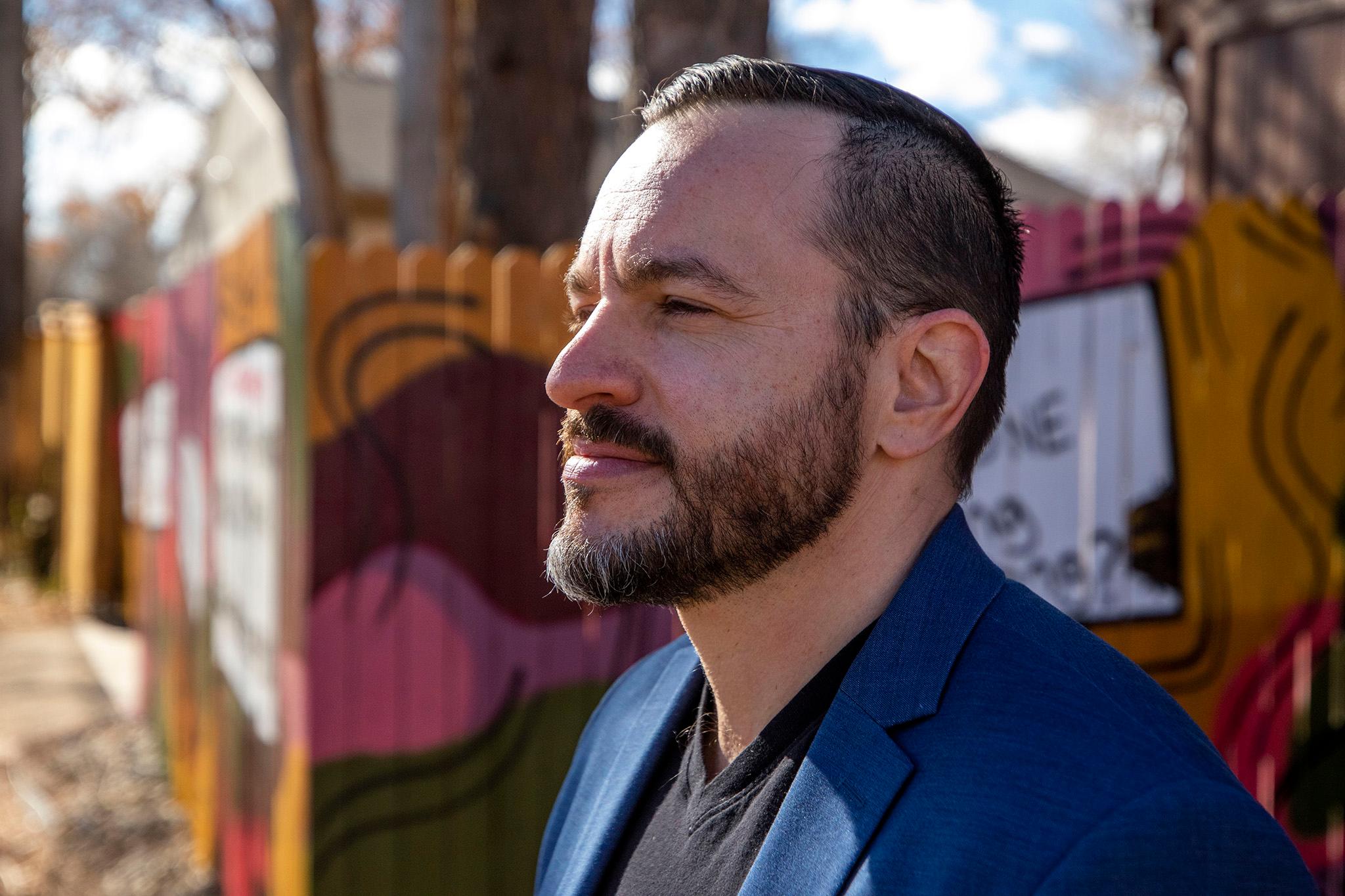
What will Denver's policing and jailing landscape look like in five years?
A smaller footprint, fewer people in our jails. That feels like a three-year goal, frankly.
For many people in our country and in our city, the only government official that they have contact within the average year is a police officer. They're not talking to other people in government, so their perception of government is largely shaped by their interactions with police officers. I guess I'd be hopeful that the police department and the sheriff's department embrace the need to change and embrace the need for humane interactions with community members, embrace the need for being open and transparent.
And in 20 years?
I'd love to see a lot of broader social changes that can allow us to have a smaller police department. I'd like to see a meaningful mental health, addiction, and recovery infrastructure that would allow cops not to be the first line of defense for those kinds of issues. I'd like to have a city in which poverty and all the indicators of poverty are not all concentrated in the same handful of neighborhoods, which then also are the same kind of neighborhoods that are over-policed most heavily.
I think there are a lot of broader changes that I'd like to see that could go alongside the right-sizing of the police department. But I think there are bigger issues that have to be addressed in our city for us to get there.

